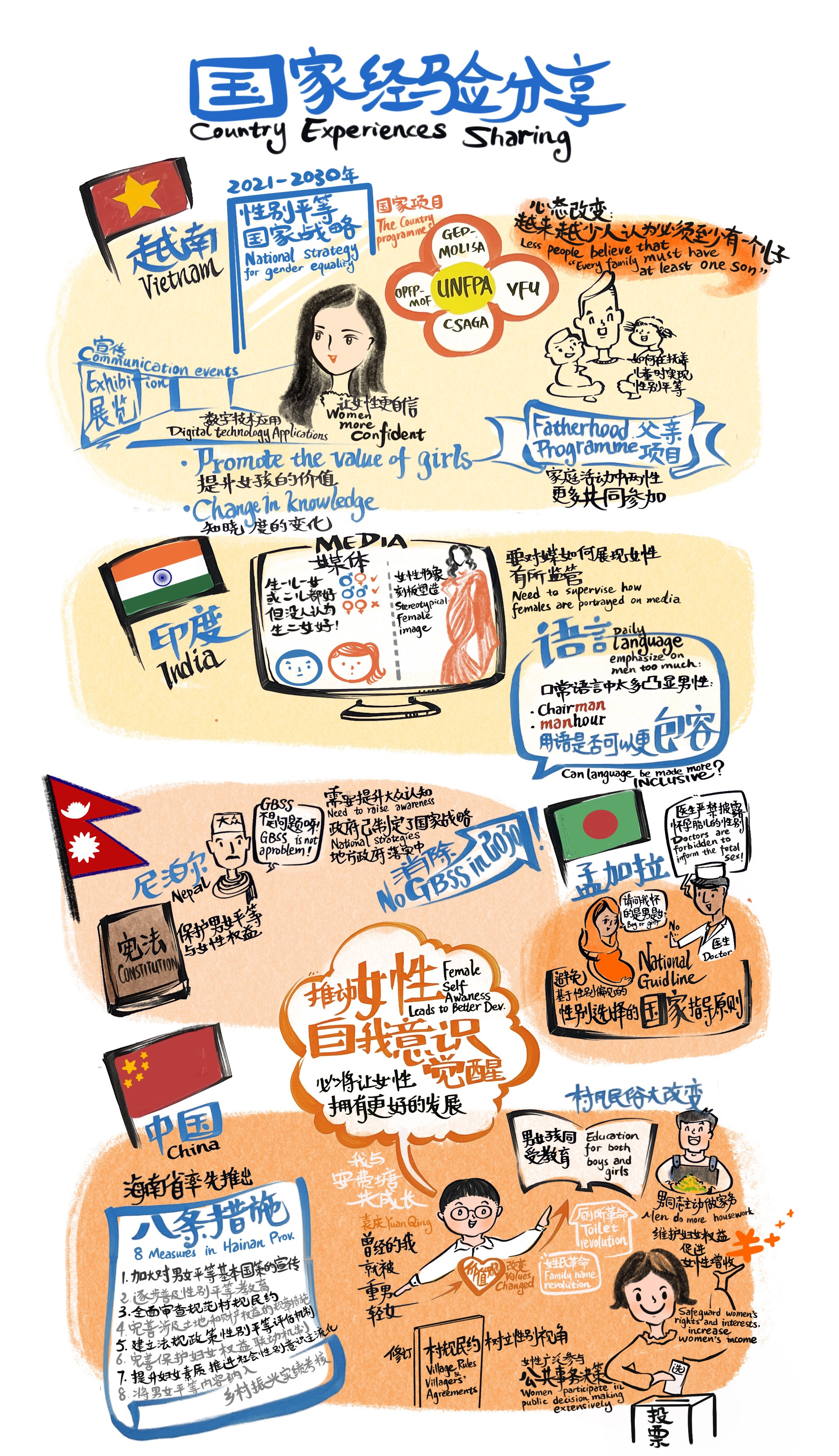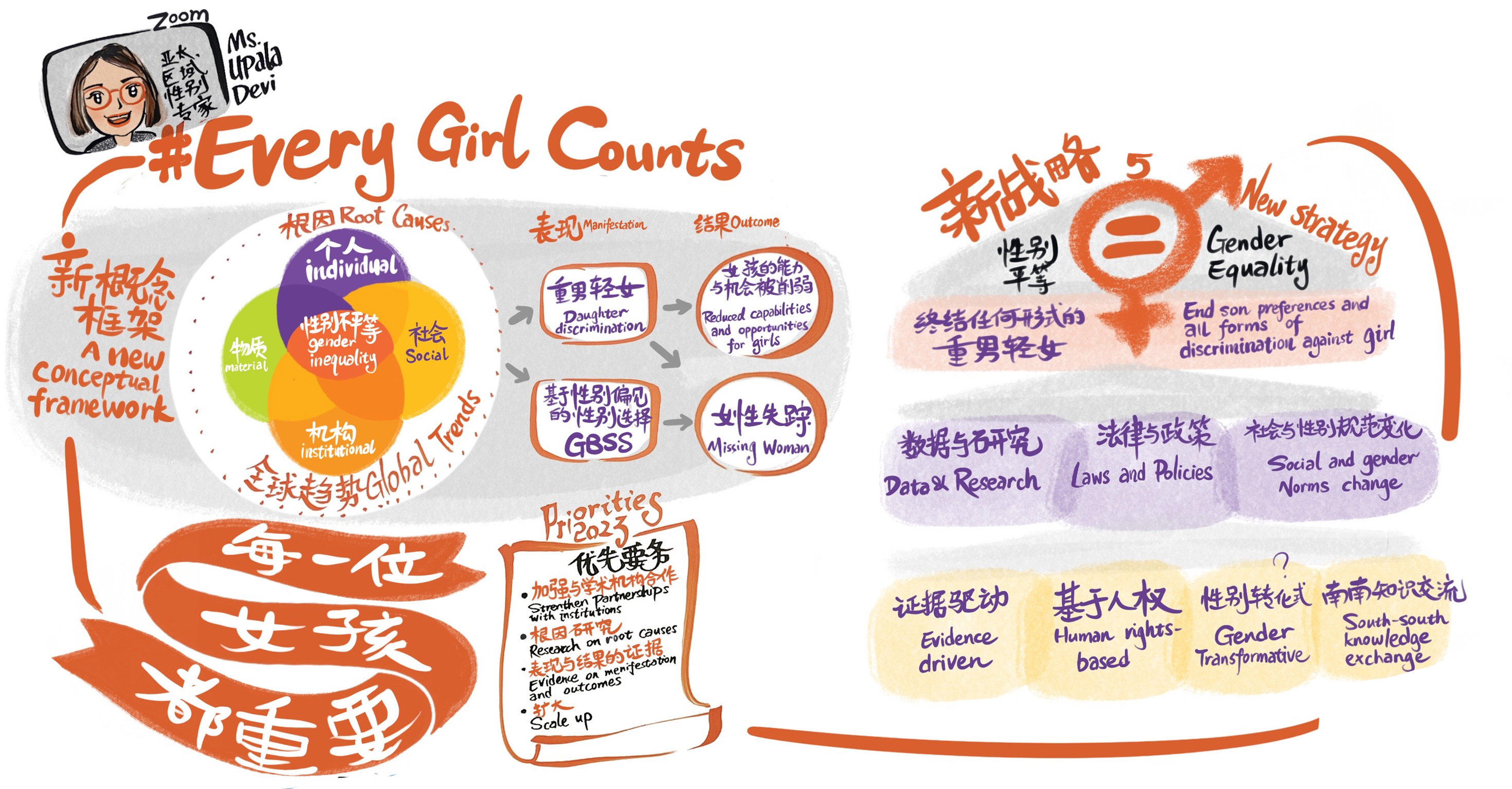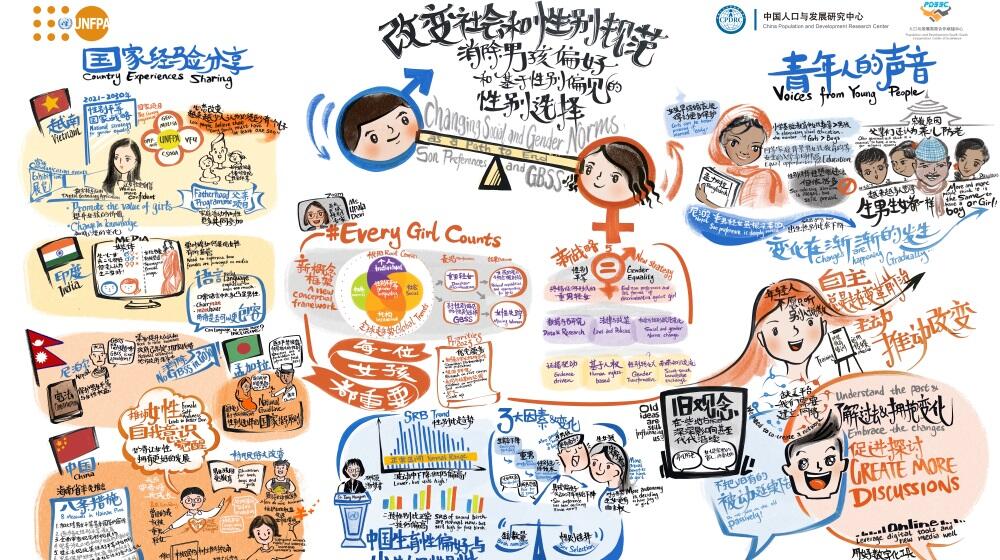In traditional societies, sons are valued more than daughters. Son preference is a harmful practice that is rooted in gender inequality. It can lead to gender-based sex selection (GBSS) and a follow up imbalance in the Sex Ratio at Birth (SRB). Worldwide, 142 million girls are missing as a result of GBSS. It has severe impacts on the health, rights and futures of women and girls.
During the International Day of Girl Child this month, the United Nations Population Fund and China Population and Development Research Center, as a UNFPA South-South Center of Excellence on Population and Development, co-hosted a South-South Technical Dialogue on “Changing social and gender norms as a path to end son preference and GBSS.” It attracted over 90 people from China, Vietnam, Nepal, India and Bangladesh online and offline to share their practices in driving positive social norm change.

Below are some highlights from the dialogue:
China
The normal sex ratio at birth is between 102 to 107 boys per 100 girls. China has had a prolonged high SRB beyond 107 since the 1980s.
However, there has been a decline trend of son preference, as a result of socio-economic development and policy advocacy on gender equality and girls' value. From 2009 to 2020, the country has achieved a decline in skewed SRB from 119.45 to 111.3.
In Hainan and Anhui Provinces where there is a strong son preference, measures are being taken to protect the rights of women and girls, from education to property in marriage, with a focus on rural areas.
Vietnam
Available data suggests that the SRB in Vietnam in 2019 was 111.5. It has launched a series of regulations and policies to restore the country's SRB. In particular, its Fatherhood Programme engages young men in addressing gender inequality and building healthy family relationships.
Nepal
The SRB of Nepal in 2021 was 112, an increase over the previous 106 in 2011. Son preference is more prevalent among rich, educated, urban people in areas of Nepal bordering India. To address son preference, Nepal has set ending GBSS as a national strategy and a goal to be achieved by 2030, with the formation of the Implementation Facilitation Committee at provincial level.
India
India has constantly engaged media and communications professionals to tackle gender discriminatory norms, by promoting recognition of women and their roles and contributions to the family and society, breaking stereotypes of women and girls, and challenging the root biases against women and girls.
Bangladesh
The Government of Bangladesh issued a National Guideline for the Prevention of Son Preference and the Risk of GBSS in 2022, to guide medical professions and community level health workers in preventing prenatal sex determination, with clear obligations defined.

Young people's voices
Youth leaders from the five countries called for young people to champion gender equality and take actions in promoting girls' value, taking advantage of digital technologies.

UNFPA
As the only UN agency working to end son preference and GBSS, for more than 20 years, UNFPA has been a leader in the global movement to end GBSS, starting from the cooperation with India and China. Since 2016, UNFPA has been implementing the largest multi-country initiative to address Son Preference and GBSS in six targeted Asia and Caucasus countries, including Nepal, Bangladesh, and Vietnam - with China and India as knowledge sharing partners.
It launched the new “Every Girl Counts” Strategy for the GBSS programme, which prioritises tackling the gendered root causes - based on analysis of harmful social and gender norms, discriminatory structures against women and girls and gender inequality at large.


